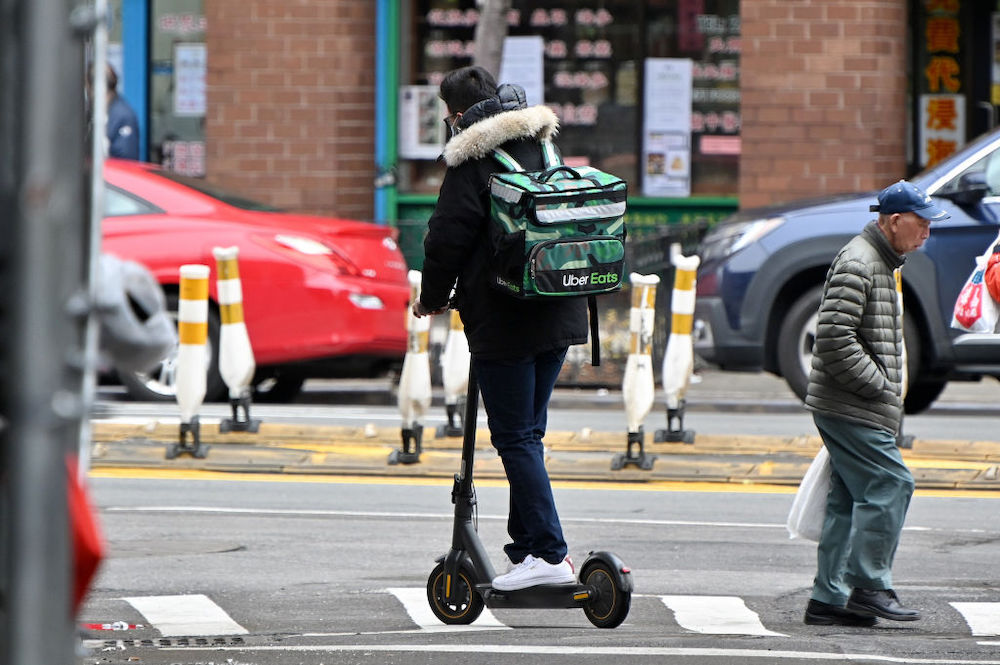- New York’s legalization of e-bikes and e-scooters comes amid the need for transportation during the coronavirus pandemic.
- The move may be a much-needed boost for micromobility operators struggling to gain a foothold in the nascent industry
- The micromobility sector likely will face consolidation, with parent-backed startups being in a stronger position when the pandemic ends.
How can healthcare professionals and other essential workers get around a city while staying safely isolated from others during the deadly coronavirus epidemic? Use e-scooters and e-bikes, say New York State officials.
New York Governor Andrew Cuomo included language legalizing the micromobility vehicles in the state’s 2021 Fiscal Year budget last week, only months after vetoing an almost identical proposal in January. The reversal occurred after the coronavirus, which has hit New York City particularly hard, put a spotlight on e-bikes as a safe, sustainable mode of transportation, said supporters who have fought for legalization.
Travel by the vehicles is “an economical and safe option that allows for social distancing while public transport is impacted by the pandemic,” New York State Senator Jessica Ramos told Karma in emailed comments.
New York’s move may be a much-needed bright spot for micromobility startups that have flooded the market in recent years, struggling to gain a foothold and earn a steady customer base. The pandemic has hurt the industry as the many lockdowns reduce people being out and about. Lime suspended almost all of its services in the 100 cities worldwide where it was operating, while Helbiz said expansion plans have been put on hold after its ridership fell by half in its market of Washington, D.C.
Other operators have tried to use their services to help communities cope with the crisis. Revel, which shut down in Miami and reduced service in Oakland, California, began offering free rides to health-care workers as a way to get to work. Rival Bird followed suit starting today in the U.S. while its Italian unit lent scooters to the Red Cross to deliver food and medicine to locals there.
“This pandemic has created a very difficult situation for a lot of people, but micromobility has been able to play a small role in helping the cause,” Revel co-founder and CEO Frank Reig told Karma in an emailed comment.
The pandemic has overshadowed New York’s move so it’s too early to judge the long-term impact of the legalization, Asad Hussain, mobility analyst at Pitchbook, told Karma. “In a normal environment it would be a big step forward,” he said.
Still, Hussain said, there have been lessons to learn about micromobility’s benefits. The devices have been shown to be an ideal way to provide essential workers with a way to get around in more densely populated cities while keeping streets clear of vehicles. That may be why e-bikes and e-scooters will be important for New York, maybe less so for cities like Houston, the analyst explained.
Long term, Hussain still expects to see consolidation within the industry. Micromobility operators with strong backing by parents, like Uber’s Jump and Ford’s Spin, are in positions to gain market share coming out of this crisis, while others — like Bird — may falter.
Ramos, whose district is centered in New York City’s Queens borough, had fought for the legalization of the devices for more than a year. She said many of the people who want to use the e-scooters and e-bikes are low-income delivery workers who need safe and inexpensive transportation around the city. But she knows the devices also can have a bigger benefit for everyone.
“E-bikes and e-scooters provide an alternative form of transportation that is cleaner, takes up less room, and most often than not, is more efficient,” Ramos told Karma. “Micromobility responds to growing cities’ problem with over-congestion, transit deserts, and high carbon emissions from cars.”
Photo by Dia Dipasupil/Getty Images






















